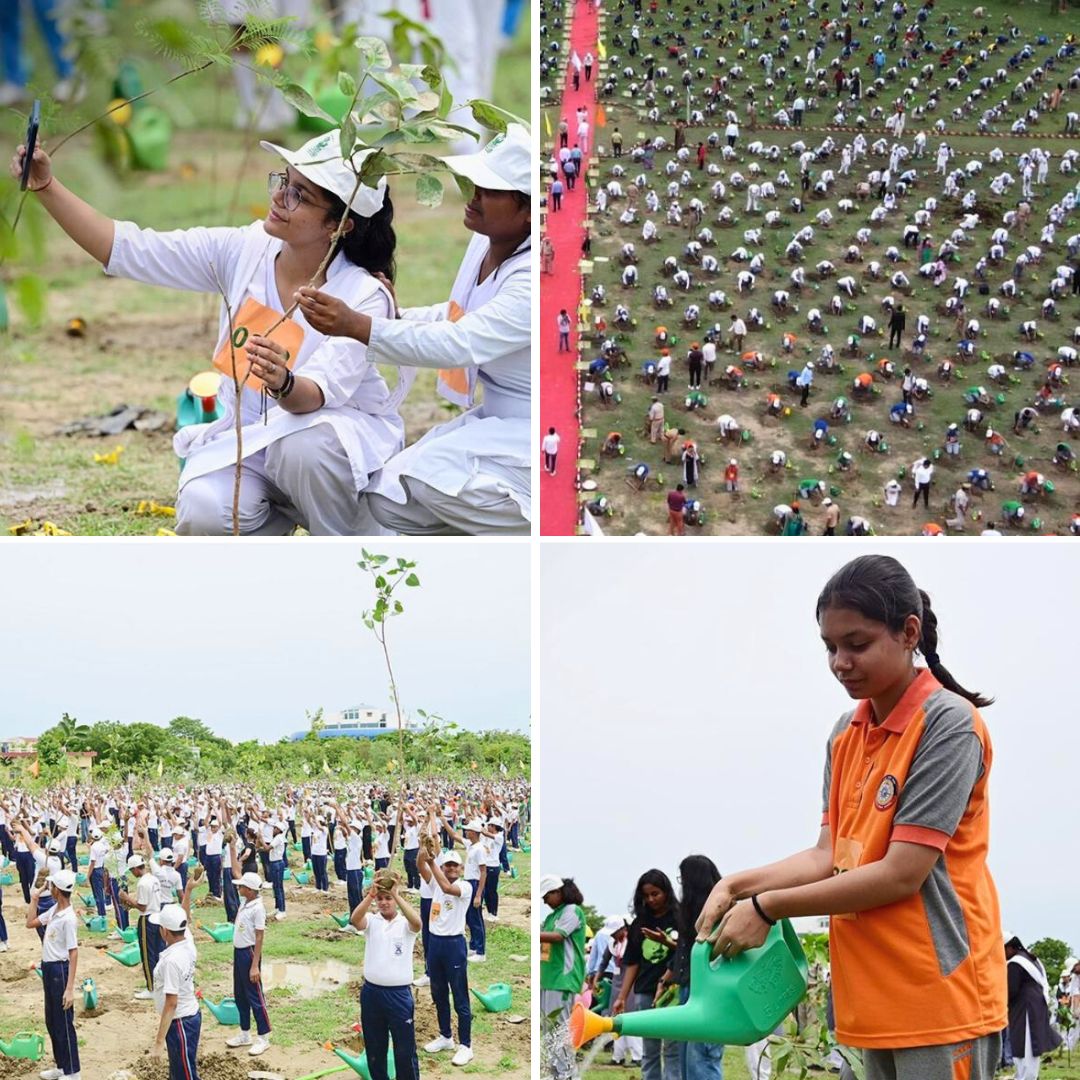Uttar Pradesh set a new benchmark in environmental action on July 9, 2025, as students at Dr. Bhimrao Ambedkar University in Lucknow planted 2,100 saplings in just 10 seconds, contributing to the state’s record-breaking effort of planting over 37 crore saplings in a single day.
The event, part of the ‘Ek Ped Maa Ke Naam 2.0’ campaign, was attended by top government officials and supported by a robust digital monitoring system. Officials highlighted the integration of geo-tagging and community participation as key to ensuring transparency, accountability, and long-term success.
The Guinness World Record attempt is under review, while the state’s broader plantation drive is being celebrated as a milestone in India’s green movement.
A Day of Unity, Innovation, and Hope
The plantation drive at BBAU was meticulously organised, with students from over a dozen schools, university staff, and volunteers working in synchrony. The campus buzzed with excitement as, at the signal, every participant planted, covered, and watered their sapling in a matter of seconds.
Chief Guest Awanish Awasthi, Advisor to the Chief Minister, praised the event: “This is not just about numbers, but about inspiring a generation to take responsibility for the environment.” Vice-Chancellor Raj Kumar Mittal highlighted the university’s commitment to nurturing the saplings, stating, “We are not stopping at planting; we are pledging to care for these trees and ensure they grow.”
The event was supported by the Forest Department, with Divisional Forest Officer Sitanshu Pandey noting that 19 diverse species were chosen to boost local biodiversity and ecological resilience.
A Statewide Movement Backed by Technology
The Lucknow event was part of a much larger, synchronised effort across Uttar Pradesh, where government officials, students, farmers, and citizens planted saplings in forests, along highways, in schools, and on private land.
The campaign’s unique approach included geo-tagging every sapling using a dedicated mobile app, allowing for real-time monitoring and transparent reporting. Saplings were distributed with tree guards and care instructions, and volunteers were assigned to monitor their growth.
The Forest Department partnered with local NGOs, businesses, and community groups to ensure that the initiative would not end with the planting day. According to state officials, regular audits and digital tracking will help maintain a survival rate above 80%, a significant improvement over previous years.
Legacy, Challenges, and the Road Ahead
Uttar Pradesh’s plantation drive builds on a legacy of large-scale green initiatives, having previously set world records for mass plantation. However, officials acknowledged the challenges of maintaining sapling survival amid urban expansion, water scarcity, and climate change.
To address this, the government has launched public awareness campaigns, school-based eco clubs, and incentives for communities that achieve high survival rates.
Environmental experts have lauded the integration of technology and community engagement, noting that sustained care and monitoring are crucial for long-term impact.
The campaign’s emotional appeal dedicating each tree to one’s mother has resonated widely, deepening public commitment to environmental stewardship.
The Logical Indian’s Perspective
This record-breaking plantation drive is a powerful reminder of what can be achieved when government, institutions, and citizens unite for a common cause. The Logical Indian celebrates the blend of innovation, accountability, and empathy at the heart of this campaign.
As we applaud this green milestone, we urge our readers to reflect: How can we transform such inspiring one-day actions into a lifelong culture of environmental care in our communities?












